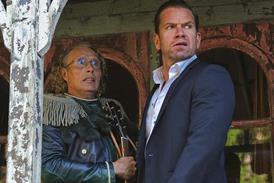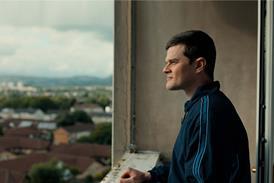As expected, former Locarno and Rotterdam festival chief Marco Mueller has been appointed artistic chief of the Venice Film Festival.
Rome born Mueller will replace Moritz de Hadeln, the British-born Swiss national who became the first non-Italian to run the world's oldest festival when he was appointed in 2002 on a one-year contract.
Mueller, like his predecessor, will now have four months to prepare the line-up of the 61st festival, which will be announced at the end of July.
"I would like to thank [Biennale president] Davide Croff and the board. It is the most prestigious jobs an Italian "festival-maker" can aspire to," Mueller said when his appointment was confirmed on Thursday.
"Of course, for some time now I have dedicated myself body and soul to making films, and had decided to stop what I had been doing [as festival director] for the last twenty years," Müller continued, explaining that as a result, he had carefully mulled over his decision before accepting the Venice job.
However, Müller said that he is now ready for new, ambitious objectives. "I want to turn the festival into an event that corresponds even more to the demands of the people who make films, distribute them, and go the cinema to watch them."
"I hope that the 61st edition of the festival will be an nimble event, that will take place in a climate of constant dialogue both on an industry and on a cultural level, in Italy and abroad."
In an effort to limit the dash to the finishing post, Venice had asked De Hadeln to stay on as a consultant to the festival until March, so as to ensure "a smooth transition."
"Even if I haven't been able to make any definite decisions without knowing which and how many competitions or retrospectives there will be, I do know which are the available films," De Hadeln said shortly before Müller's appointment.
However, in a frank and fiery interview with Italian national daily Il Corriere della Sera, De Hadeln said Venice had recently offered him at least Euros 20,000 to keep quiet about the festival and not give any interviews in Italy or abroad until September 30, 2004.
Needless to say, De Hadeln refused.
"My dignity is not up for sale," he said, adding that the financial offer had come from "some legal office of the Biennale, and not from [new Biennale president] Davide Croff."
Following Mueller's appointment, De Hadeln issued a statement thanking the Biennale's former president Bernabe' and all his colleagues from the 2002 and 2003 editions of the festival.
"After months of uncertainty, and at times polemics, the new Biennale board has met. I hope the decisions they have made will guarantee, in a more serene climate, further growth for the festival," De Hadeln said.
He added: "I am only sorry that because of the war, I wasn't born in Italy!"
With Mueller an internationally well-respected personality, onlookers now hope that his appointment will help keep political turmoil at bay for longer than the duration of the next couple of festivals.
In an effort to provide at least some semblance of continuity, the Biennale announced on Thursday that Müller had been given a four-year contract, adding nevertheless that "the board will carefully examine the festival's results at the end of the next edition."
Venice has been hit by waves of political turbulence ever since Alberto Barbera was ousted from the festival following the win of Silvio Berlusconi's centre-right coalition in the 2001 national elections.
Within the last two years, government officials have deposed a growing list of well-respected festival figureheads, regardless of the international and Italian industry's support of them.
Since ousting the universally well-liked Barbera, and Biennale president Paolo Baratta, government officials have also sent packing Baratta's successor Franco Bernabe, and now De Hadeln.
[On Thursday, the Biennale also announced that the general director of the newly-formed Biennale Foundation, Paolo Gardin, had stepped down. He is replaced by Luciano Carbone.]
De Hadeln, who like Mueller, and fortunately for the Biennale, had come to the Lido with an address-book full of industry contacts, did have his own staunch supporters within the Italian film industry, and even within the highest ranks of the Biennale.
However, this ultimately wasn't enough. According to industry rumours, the clock started ticking for him when the last festival's jury anointed Russian film The Return as the Golden Lion winner, by-passing Italian favourite Buongiorno, Notte.















![[Clockwise from top left]: Paul Thomas Anderson, Chloe Zhao, Ryan Coogler, Park Chan-wook](https://d1nslcd7m2225b.cloudfront.net/Pictures/274x183/9/0/0/1467900_writerdirectors_192733.jpg)


No comments yet